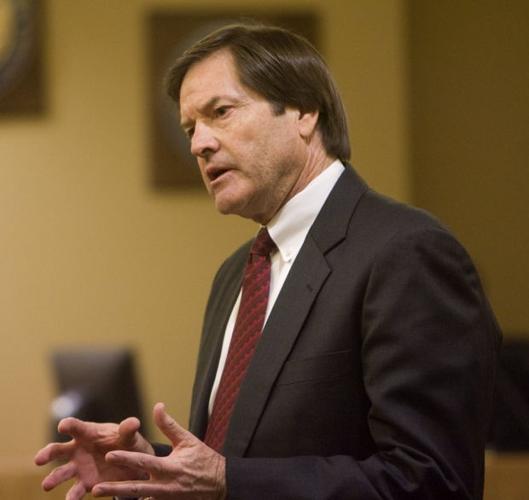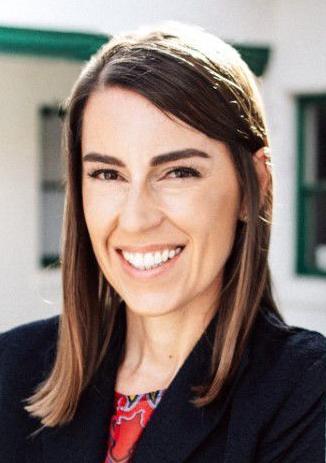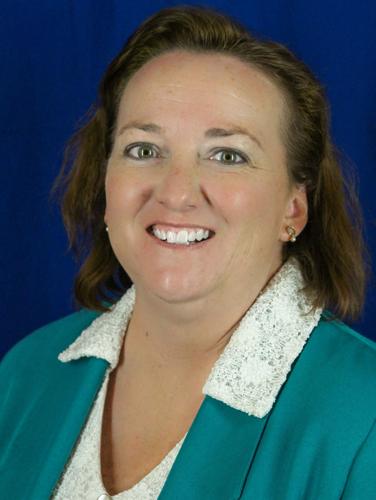A behind-the-scenes battle between Pima County’s top prosecutor and the administration she replaced rages on six months after the start of Pima County Attorney Laura Conover’s term. The result: dozens of employee departures and the threat of litigation by one former official.
While the 58 employee departures as of June 14 resulted in the loss of more than 450 years of experience, the office has brought in 44 new employees as of Tuesday. Conover says the new hires are a diverse and talented group, but some remain concerned about the exodus.
The departures are a combination of resignations and retirements, with no employees having been terminated, although Conover said “one or two employees did not retain a leadership position” in the new round of selections.
Employees’ reasons for leaving vary, but a handful of former employees say they believe the County Attorney’s Office is no longer prioritizing accountability for offenders and in some cases, not prioritizing victims’ rights, documents and interviews indicate.

Conover
With the office’s shift in focus, one former prosecutor believes that public safety will suffer, as offenders become savvy to the new dynamic that prioritizes rehabilitation over incarceration. And with hundreds of years of experience walking out the door, others are concerned that new employees will have no one to turn to for advice on handling Pima County’s most serious criminal cases.
Some former prosecutors say they were uncomfortable with new duties, including looking for mitigating factors — historical or psychological reasons that could explain a defendant’s actions and result in lower-level charges or sentence — and immigration consequences, which they say is the defense attorney’s job.
Employees who have complained about the changes to the office or disagreed with Conover’s vision of reform are met with retaliation, according to one document obtained by the Star.
Conover said employees, some of whom have done things the same way for decades under the previous administration, are saying that “professional business decisions are feeling very personal to them” and that some are having “really personal responses to business decisions.”
Conover says her mandate from voters is to reframe the priorities of the office, and some people are having a hard time adjusting.
“(To) those who devoted their career to the previous administration that was tough on crime, I’m in a rough position to be the messenger trying to explain what’s happening. I have to deliver the message from Pima County that says we must grow in a new direction,” Conover said. “And it puts them in an uneasy place.”
Conover said that she vowed not to fire any prosecutors from the previous administration, as other county and district attorneys do when taking office, and that she’s kept that promise, calling it “exhausting administratively.”
“For five months, I really tried to work with some people who were truly unhappy with just everything. And they’ve finally realized that they don’t have to grow with us. They can go on, they’re not trapped here. And so they’re departing and we wish them well,” Conover said. “The commitment from now on needs to be that we are undistracted and undeterred, and we’re focusing on the extraordinary hiring that’s going on.”
‘Not how it was supposed to be’
Pima County prosecutor Nicol Green arrived to her last day on the job Friday, June 11, expecting to spend most of her time finalizing work on her cases that would be permanently handed off to colleagues in her absence.
Green was named major crimes bureau chief in February 2019, and previously supervised the cold-case and domestic-violence units. When Conover took office, Green’s title was chief trial counsel, but that was taken away shortly before she resigned.

Green
Green was met with a surprise that last day at the office, but it wasn’t an all-office party or any kind of fanfare over her departure after nearly 22 years of service.
Instead, Green found herself locked out of her county-issued computer and email accounts shortly after she arrived, eventually being told it was the result of a new policy for outgoing employees.
Green was unable to do any work on her cases or say goodbye to her colleagues en masse as she’d planned. But she still had to stick around for her afternoon exit interview with the Pima County Attorney’s Office’s human resources department via Microsoft Teams.
After the interview, Green realized that she had access to PCAO’s criminal bureau group on Microsoft Teams, and she set to work, hastily writing off a farewell.
“I’m heartbroken about how this career is ending. Heartbroken for the Victims. Heartbroken for the folks I’m leaving behind who have worked so hard to hold people accountable for their crimes and protecting the rights of Victims,” Green wrote in the message. “Finally, I’m heartbroken for the citizens of Pima County I’ve dedicated my life to serving and protecting. I’m heartbroken because this is not how it was supposed to be.”
Green, an admitted conservative who said she was not resistant to many of Conover’s reform efforts, said that she had every intention at the start of the year to stick around until she was retirement-eligible in 2025. She eventually put in her notice in May after she says she came to the conclusion that the office was no longer focused on ensuring accountability for offenders.
Being smart vs. being tough
In an open letter sent to Conover and all other employees through the officewide email account, one six-year departing paralegal accused Conover of not taking time to understand what made the office successful before making “tidal wave changes.” Conover called the changes being “smart on crime,” as opposed to tough and said that what she’s asking for is a level of attention to detail that employees haven’t been used to in prior years.
She said that in some cases, she is asking attorneys to seek out mitigating factors for defendants, calling that a “best-practice suggestion” that is welcomed by most prosecutors. Conover used the example of the office’s homicide review panel, in which a group of prosecutors review homicide case files, which are not always complete, if defense attorneys haven’t sent over any materials. By not taking those mitigating factors into account during the charging panel, the office is setting itself up for an appeal.
“At least we’ve checked that box to get a good solid conviction the first time. This is smart on crime, because appeals double the costs, and we’re trying not to have the most expensive system in the world anymore,” Conover said. “It’s protecting the record and it’s bringing in best practices so that we get it right the first time.”
Another complaint included in the letter was the breakdown of the office’s civil unit. It lost much of its staff when anyone involved in the Louis Taylor case left, after a declared conflict of interest by the previous administration. Taylor, who was convicted in the 1970 Pioneer Hotel fire and served 42 years in prison before making a deal with former Pima County Attorney Barbara LaWall’s office in 2013, is suing the county and city of Tucson, alleging racism and poor training of police and prosecutors led to his false conviction. Before her departure, LaWall and her team declared that Conover had a conflict of interest and retained outside counsel to handle the case going forward.
The letter said and Conover acknowledged that a number of tort cases that were previously being handled by Pima County attorneys were contracted out to local law firms.
Conover said that with the recent hiring of a new civil division chief and several new attorneys set to start in July, the “period of having to send out cases has stopped.”
She also said that Pima County supervisors told her that service on existing cases had been continuous and admitted that she didn’t realize how much of a hot-button issue the Taylor case would remain.
Another complaint in the letter was that victims were being encouraged to not press charges so that people accused of crimes can get help, saying that safety is a higher priority over providing assistance to offenders.
Conover said that the office’s Victims Services Division was deeply affected by the pandemic — undergoing two separate outbreaks and losing its chief the middle of last year — but that she believes communication with victims is paramount.
“That division was the crown jewel of this office and it can be again,” Conover said, adding that she recently hired Virginia Rodriguez from the Arizona Attorney General’s Office as the division’s new chief. “I really believe it will be again.”
Conover said that she’s had more than 10 private meetings with victims to make sure that their voices are being heard, and has asked her staff to send along any requests by victims to speak to the county attorney directly.
“They’re my bosses. The community is my boss. I want to serve them as best as I can,” Conover said. “I’ve been trying to teach that to Victims Services and the prosecutors, too.”
Ex-bureau chief has concerns
Longtime Pima County prosecutor and outgoing Chief Criminal Deputy David Berkman said he reached out to Conover and her senior leadership team before she took office in an effort to assist with the transition. His help seemed unwanted and unwelcome, he said, and Conover did not respond to several overtures but eventually agreed to a conversation. That was the end of their interactions, and Berkman departed the office on Jan. 1.
He told the Star he has concerns with Conover’s dealings with the Taylor case and has been asking for records, which the office is not producing.
Conover said Monday that since January, Berkman has sent the office 73 public-records requests, including one that morning.
“It literally is the previous administration going around and causing all these rumblings,” Conover said. “They have not stopped campaigning. They have never for a moment stopped. They’re threatening litigation, they’re threatening state bar complaints. Never for a moment was it accepted.”
Berkman said Wednesday the number of requests he’s submitted is “far less” than what Conover reported. He said part of the problem came after Conover filed a bar complaint of her own against former Deputy County Attorney Rick Unklesbay, which had a polarizing effect on many PCAO employees. Unklesbay, an open supporter of Conover during and after the campaign, retired in early March.
Conover said that after Chief Deputy Mulembo “discovered that our email network had been breached by former employees,” she followed Arizona Supreme Court rules and filed a mandatory report regarding to the forwarding of work product to non-employees.
Conover said the report is not the same as a bar complaint, and that to Mulembo’s knowledge, the matter is not closed.
Unklesbay told the Star Thursday that a bar charge alleging an ethical violation was filed by the office on April 2. Unklesbay denied any such violation, and told the Star that while he had responded at the bar’s request, the charge remains open.
Another concern of Berkman’s is Conover’s office’s revisiting of decades-old closed cases, including those of Ralph David Cruz and Angela Rene Leeman, who are both serving life sentences for crimes committed as juveniles.

The filing of a state bar complaint against former Deputy County Attorney Rick Unklesbay by Pima County Attorney Laura Conover had a polarizing effect on many employees in the prosecutor’s office, departing workers say. Unklesbay, an open supporter of Conover during and after her political campaign, retired in early March.
Cruz was convicted of three counts of first-degree murder and one count each of armed robbery and aggravated assault in the 2000 killing of 36-year-old Lucila Bojorquez and her two children, Star archives show. Cruz, then 16, shot the family to death at a west-side apartment complex in an attempt to steal the wheels of Bororquez’s car. The mother was left to die in the parking lot and the bodies of her children were later found at Gates Pass.
Leeman was convicted in 1994 of 13 counts of child abuse and drug charges in a case of child abuse that prosecutors and court officials called the most horrifying they’d ever seen, according to Star archives. Leeman, then 17, and her 30-year-old boyfriend, Gregory Scott Hatton, were arrested five days after taking her 8-month-old son to the emergency room. They told doctors the child was sick and didn’t seem to be getting any better, but doctors determined the child had been systemically raped, beaten and brutalized to within 24 hours of his life, Star archives show.
Both defendants are actively petitioning for reduced sentences through post-conviction relief, saying that mitigating factors were not presented at trial. But their efforts began years ago, after a 2016 U.S. Supreme Court ruling that the abolishment of life imprisonment without parole for juvenile offenders must be applied retroactively. While states weren’t required to re-try applicable cases, every state must allow juvenile homicide offenders to be considered for parole.
Conover said she could not discuss ongoing cases, but said that she promised in her campaign platform that she would take the office’s wrongful-conviction unit and make it a true, robust conviction integrity unit.
“We’ve launched it and have been working hard to be accessible that if a mistake was made, there’s a review process. We’re absolutely living up to (the campaign promise,)” Conover said, adding that the office’s previous unit was around for several years but consisted only of one part-time prosecutor — Unklesbay. “We’re going to put the resources behind it to make it successful.”
Gabriel “Jack” Chin now heads up the conviction integrity unit and has gotten a great response from defense attorneys, who have been sending in materials for Chin to review.
Chin, who is representing PCAO in both Cruz and Leeman’s quests for sentence reductions, will eventually have a full clinic of law students working with him, in addition to full-time staffers.
Leeman has a hearing with the Arizona Executive Clemency Board on July 6. Conover said the county attorney’s office “historically has always participated with the clemency process” and “will continue to do that.”
Berkman said that with decades worth of experience having walked out the door, the office’s new prosecutors are running out of seasoned prosecutors to turn to for advice in handling serious cases.
“They’re going to be getting advice from people that haven’t worked there for very long,” Berkman said.
‘How people are treated’
Green and others say the bulk of the departures aren’t about changes Conover is making or a lack of interest in reform, and Green said exactly that in her farewell message to colleagues.
“It has to do with how people are treated,” Green wrote.
Green said that after she submitted her resignation letter to PCAO’s three top bosses, she received only an email from Chief Deputy Tamara Mulembo acknowledging receipt and thanking her. Green had limited interactions with Mulembo and Conover after that, and no conversations about her departure. She also said she had no indication prior to that Friday morning that she would not have access to the tools needed to do her job.
Green said that she had positive interactions with Conover before her new boss took office and was hopeful about the transition, telling co-workers she believed everything would be fine.
“Being a prosector ... was about holding people accountable, getting justice for Victims and protecting the community. This emphasis is gone,” Green wrote, urging her colleagues to continue to “be the ones to hold people accountable.”
Green told the Star that with the rising homicide rates in Pima County and the office’s new push to ensure offenders — even those with prior convictions for violent offenses — are able to receive bail, she’s concerned about what Conover’s changes will mean for community safety. She acknowledged that the rise in violent crime rates started in 2019 and is part of a nationwide trend.
The letter from the departing paralegal accused Conover of “Darth Vader” management tactics, saying that Conover’s negative public statements about some employees put others in an impossible situation.
“I want to be really respectful as to each individual, even when they do use government resources to send out frustration to the whole office,” Conover said, declining to comment on specific departures. “I sympathize with the situation. Many of those departing came here to work for the previous administration.”
Conover said that some of the previous administration’s employees simply did not share the reform mentality that voters had asked for, while others who understood the community’s desire for change and want to be a part of the office’s efforts to implement change now have the opportunity “to spread their wings and fly.”
Conover said that some of the departures are also the result of the office’s low pay, an issue that she’s been working to correct since August.
A recent letter of resignation by one prosecutor mentioned a 40% pay increase at a private firm, and Conover said that there are staff members who work second jobs on nights and weekends to make ends meet.
“We have prosecutors who can go to other counties and tremendously increase their salary,” Conover said. “These are the people we’ve asked to keep our community safe. And they’re the lowest paid prosecutors in the state. That’s been going on for a decade.”
Conover stressed that while some cities and counties undergo leadership changes every four or eight years, it’s a much more difficult task transitioning to outside leadership after 44 years under the old regime.
“It’s highly unusual,” Conover said, adding that bulk of the complaints are coming from employees who worked under the previous administration. “It truly is small, but loud. And I’ve gotta focus on the mission. Public safety is too important for these shenanigans.”




